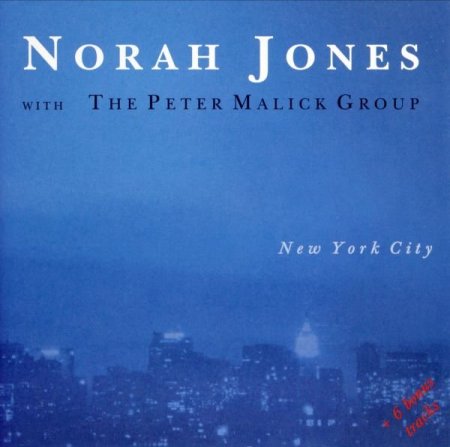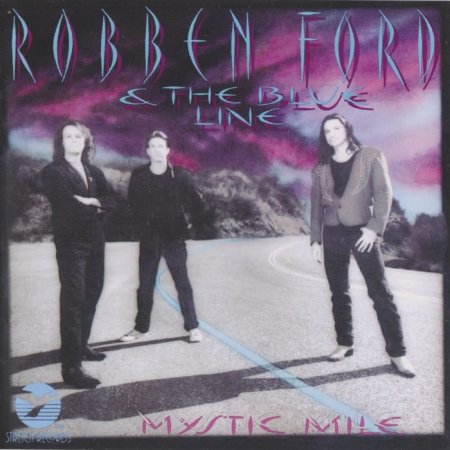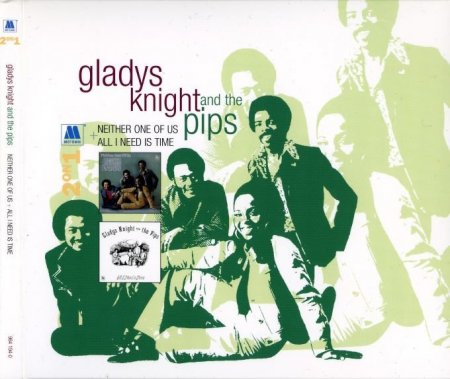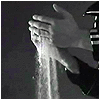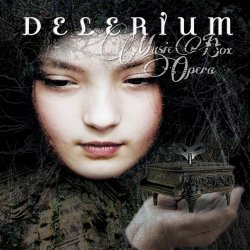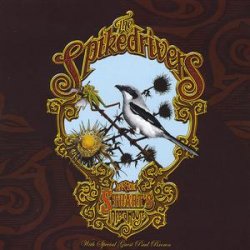Gunther Schuller - Scott Joplin's "Treemonisha" (1975) ―¹–Κ–Α―΅–Α―²―¨ –±–Β―¹–Ω–Μ–Α―²–Ϋ–Ψ
- –î–Α―²–Α: 31-03-2009, 20:04
- –ê–≤―²–Ψ―Ä: bulavka
- –ö–Ψ–Φ–Φ–Β–Ϋ―²–Α―Ä–Η–Β–≤: 0
- –ü―Ä–Ψ―¹–Φ–Ψ―²―Ä–Ψ–≤: 2393

–•–Α–Ϋ―Ä: Jazz, Ragtime, Opera
–™–Ψ–¥ –≤―΄–Ω―É―¹–Κ–Α –¥–Η―¹–Κ–Α: 2005
–Λ–Ψ―Ä–Φ–Α―²: mp3
–ë–Η―²―Ä–Β–Ι―² –Α―É–¥–Η–Ψ: 160 kbps
–†–Α–Ζ–Φ–Β―Ä: 96 Mb
This 2-CD set of "Treemonisha" on Deutsche Gramophon was first released in 1976 with the initial enthusiasm over the opera and reissued in 2005 at a budget price. Gunther Schuller, who orchestrated Joplin's piano score, conducts with Carmen Balthorp singing the role of Treemonisha and Betty Allen singing Monisha.
Scott Joplin (1867/68 -- 1917) was one of the earliest composers with the ambition of combining African-American and classical musical forms. He is best-known for his ragtime compositions for the piano, but he also worked in more ambitious genres. By 1910, Joplin had composed his second opera, "Treemonisha". (The score of an earlier opera, "Guest of Honor" has been lost.) He spent much of the rest of life in an unsuccessful attempt to have Treemonisha staged and performed. The opera lay dormant until the mid-1970s when with the revival of interest in ragtime, Treemonisha was staged and performed by the Houston Lyric Opera Company and received a posthumous Pulitzer Prize in 1976. Treemonisha was made into a movie and presented on television but, unfortunately, it has again largely faded from public sight. The work receives performances from time to time by music festivals and schools and by small opera companies.
Joplin wrote the libretto as well as the music for Treemonisha. The story is set around 1884 in a rural African American community near Texarkana, Arkansas. (Just before my rehearing of Treemonisha, I passed through Texarkana on the train en route to Dallas.) The story shows Joplin's vision of how rural African Americans could advance after the Civil War by combatting superstition and by hard work, good leadership, and, most of all, a commitment to education. Importantly, Joplin's story teaches the virtue of forgiveness and of not holding grudges.
The heroine of the opera is an 18 year old woman, Treemonisha, who had been found as an infant under a tree and raised as a daughter by Monisha and her husband Ned. Monisha and Ned sent Treemonisha to a white woman for education, as the community had no schools, and Treemonisha returns as the only member of the community who can read and write. As the opera opens, Treemonisha foils the efforts of a conjurer, Zodzetrick, to sell a "bag of luck" to Monisha. In response, the connjurers kidnap Treemonisha and are about to throw her into a wasp nest when she is rescued by a townsman, Remus, disguised as a scarecrow. The conjurers in turn are captured by field workers and taken to the town where at Treemonisha's urging, they are forgiven and released. Treemonisha is acknowledged as the leader of the community and she and Monisha lead the people in a ragtime dance "Marching Onward".
Scott Joplin (1867/68 -- 1917) was one of the earliest composers with the ambition of combining African-American and classical musical forms. He is best-known for his ragtime compositions for the piano, but he also worked in more ambitious genres. By 1910, Joplin had composed his second opera, "Treemonisha". (The score of an earlier opera, "Guest of Honor" has been lost.) He spent much of the rest of life in an unsuccessful attempt to have Treemonisha staged and performed. The opera lay dormant until the mid-1970s when with the revival of interest in ragtime, Treemonisha was staged and performed by the Houston Lyric Opera Company and received a posthumous Pulitzer Prize in 1976. Treemonisha was made into a movie and presented on television but, unfortunately, it has again largely faded from public sight. The work receives performances from time to time by music festivals and schools and by small opera companies.
Joplin wrote the libretto as well as the music for Treemonisha. The story is set around 1884 in a rural African American community near Texarkana, Arkansas. (Just before my rehearing of Treemonisha, I passed through Texarkana on the train en route to Dallas.) The story shows Joplin's vision of how rural African Americans could advance after the Civil War by combatting superstition and by hard work, good leadership, and, most of all, a commitment to education. Importantly, Joplin's story teaches the virtue of forgiveness and of not holding grudges.
The heroine of the opera is an 18 year old woman, Treemonisha, who had been found as an infant under a tree and raised as a daughter by Monisha and her husband Ned. Monisha and Ned sent Treemonisha to a white woman for education, as the community had no schools, and Treemonisha returns as the only member of the community who can read and write. As the opera opens, Treemonisha foils the efforts of a conjurer, Zodzetrick, to sell a "bag of luck" to Monisha. In response, the connjurers kidnap Treemonisha and are about to throw her into a wasp nest when she is rescued by a townsman, Remus, disguised as a scarecrow. The conjurers in turn are captured by field workers and taken to the town where at Treemonisha's urging, they are forgiven and released. Treemonisha is acknowledged as the leader of the community and she and Monisha lead the people in a ragtime dance "Marching Onward".
Tracks:
1.Prelude
2.I want to sell
3.Very fine day
4.Dere was a man
5.You girls are wearing
6.One Autumn night in bed
7.I am greatly surprised
8.We brought you
9.Lis'en friends
10.Look, Lucy is comin' back
11.If along de road
12.Hee Hoo
13.Oo... ar Oo ar
14.Ev'rybody lis'en
15.Remus, you have saved me
16.We will rest awhile
17.Hello strangers
18.Aunt Dinah has bolwed the horn
19.Prelude
20.I want to see
21.O, here, my child
22.Never treat your neighbors
23.We should beat these men
24.When villains ramble
25.Will all of you forgive
26.We ought to have a leader
27.Salute your partner
Treemonisha, opera in 3 acts
Composed by Scott Joplin
Arrangements, Orchestration and Music Supervision by Gunther Schuller
Performed by Houston Grand Opera Orchestra & Chorus
with Edward Pierson, Curtis Rayam, Raymond Bazemore, Carmen Balthrop, Ben Harney, Willard White, Betty Allen, Cora Johnson, Dorceal Duckens, Kenneth Hicks, Dwight Ransom
Review from Amazon.com:
Joplin (ca. 1868-1917), whose fame as a composer had skyrocketed in the 1960s and '70s as a result of the "rediscovery" of his rags by Gunther Schuller, Joshua Rifkin, and others, poured his heart and soul into this tale of black sharecroppers and their struggle against ignorance and superstition in late-19th-century Arkansas. Yet he was never able to get the work staged in his lifetime. This recording comes from Treemonisha's belated full-scale staging at Houston Grand Opera in 1975, with a splendid cast headed by Carmen Balthrop, Betty Allen, Curtis Rayam, and Willard White, directed by Frank Corsaro and conducted by Gunther Schuller (who provided the arrangements and the scoring). Joplin's tuneful score is a lively mix of ragtime, minstrel show, vaudeville, grand opera, Wagner, Verdi, and Offenbach, with lots of dancing, a big role for the chorus, and arias and ensembles of affecting simplicity and beauty. Schuller gets an impressively crisp performance from the orchestra, a Dixieland band with added strings and winds, and paces the performance to perfection--for fun, just listen to the Act II-ending chorus "Aunt Dinah has blowed the horn." The recording sounds as fresh and bright as the inspiration that speaks from every page of this all-American score. --Ted Libbey
Joplin (ca. 1868-1917), whose fame as a composer had skyrocketed in the 1960s and '70s as a result of the "rediscovery" of his rags by Gunther Schuller, Joshua Rifkin, and others, poured his heart and soul into this tale of black sharecroppers and their struggle against ignorance and superstition in late-19th-century Arkansas. Yet he was never able to get the work staged in his lifetime. This recording comes from Treemonisha's belated full-scale staging at Houston Grand Opera in 1975, with a splendid cast headed by Carmen Balthrop, Betty Allen, Curtis Rayam, and Willard White, directed by Frank Corsaro and conducted by Gunther Schuller (who provided the arrangements and the scoring). Joplin's tuneful score is a lively mix of ragtime, minstrel show, vaudeville, grand opera, Wagner, Verdi, and Offenbach, with lots of dancing, a big role for the chorus, and arias and ensembles of affecting simplicity and beauty. Schuller gets an impressively crisp performance from the orchestra, a Dixieland band with added strings and winds, and paces the performance to perfection--for fun, just listen to the Act II-ending chorus "Aunt Dinah has blowed the horn." The recording sounds as fresh and bright as the inspiration that speaks from every page of this all-American score. --Ted Libbey
–Γ–ö–ê–ß–ê–Δ–§ Gunther Schuller - Scott Joplin's "Treemonisha" –±–Β―¹–Ω–Μ–Α―²–Ϋ–Ψ:
–½–ï–†–ö–ê–¦–û:
–½–ï–†–ö–ê–¦–û:
–ü–Ψ–¥–Β–Μ–Η―²―¨―¹―è –≤ ―¹–Ψ―Ü. ―¹–Β―²–Η:




